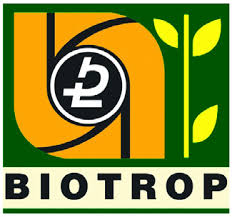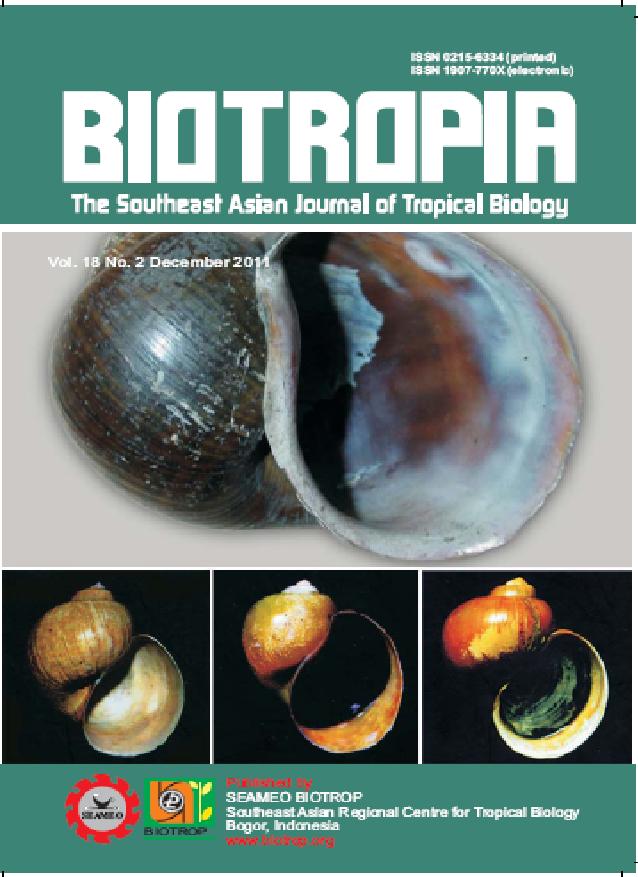
SEAMEO BIOTROP
Southeast Asian Ministers of Education Organization
547
views
Tags
NOTES ON THE DISTRIBUTION OF INVASIVE FRESHWATER SNAIL POMACEA CANALICULATA (LAMARCK, 1822) AND P. INSULARUM ( D\'ORBIGNY, 1835) IN INDONESIA
23 May 2019 - 11:52 am (6 year ago)
Content Language : English
Content Language : English

Category :
Applied Science
The freshwater snails and have been reported as important
invasive species causing damage to crops and predominantly wetland rice in Asia. These snails
are known as “Golden Apple Snail” (GAS), an introduced species from Argentina.
or known as “keong mas, keongmurbei” was introduced in Indonesia around 1983,
and after more than 20 years, it now can be found very abundant at various habitats such as
marshes, ponds, irrigations, lakes and rice fields in almost all places in Indonesia.
Based on the collections of these snails deposited in the MZB (Museum Zoologicum
Bogoriense, Research Center for Biology) and secondary data (references), the distribution
of these two snails was studied. is widely distributed, while
only found at Lake Semayang and Lake Balikpapan in Kalimantan. The distribution map is
presented and will be useful as a basic information to manage these invasive snails.
invasive species causing damage to crops and predominantly wetland rice in Asia. These snails
are known as “Golden Apple Snail” (GAS), an introduced species from Argentina.
or known as “keong mas, keongmurbei” was introduced in Indonesia around 1983,
and after more than 20 years, it now can be found very abundant at various habitats such as
marshes, ponds, irrigations, lakes and rice fields in almost all places in Indonesia.
Based on the collections of these snails deposited in the MZB (Museum Zoologicum
Bogoriense, Research Center for Biology) and secondary data (references), the distribution
of these two snails was studied. is widely distributed, while
only found at Lake Semayang and Lake Balikpapan in Kalimantan. The distribution map is
presented and will be useful as a basic information to manage these invasive snails.
Link

This work is licensed under a Creative Commons Attribution-NonCommercial-NoDerivatives 4.0 International License.
